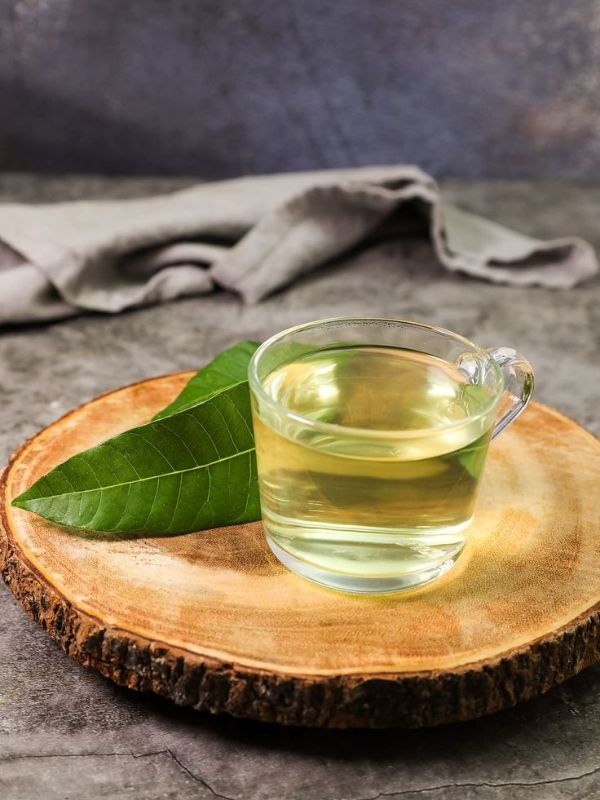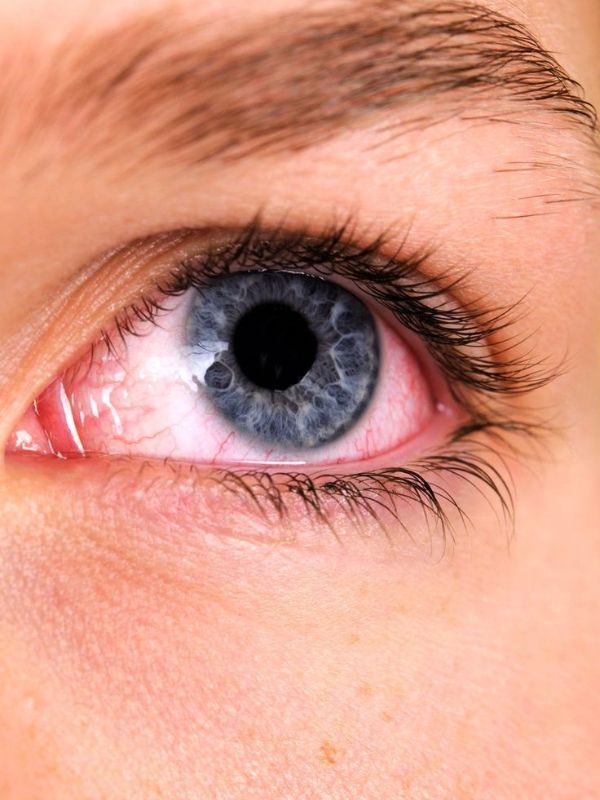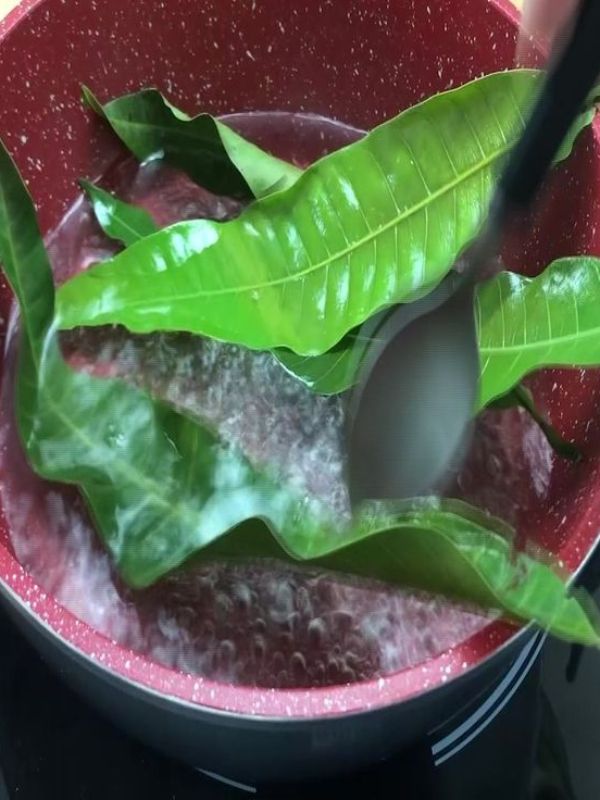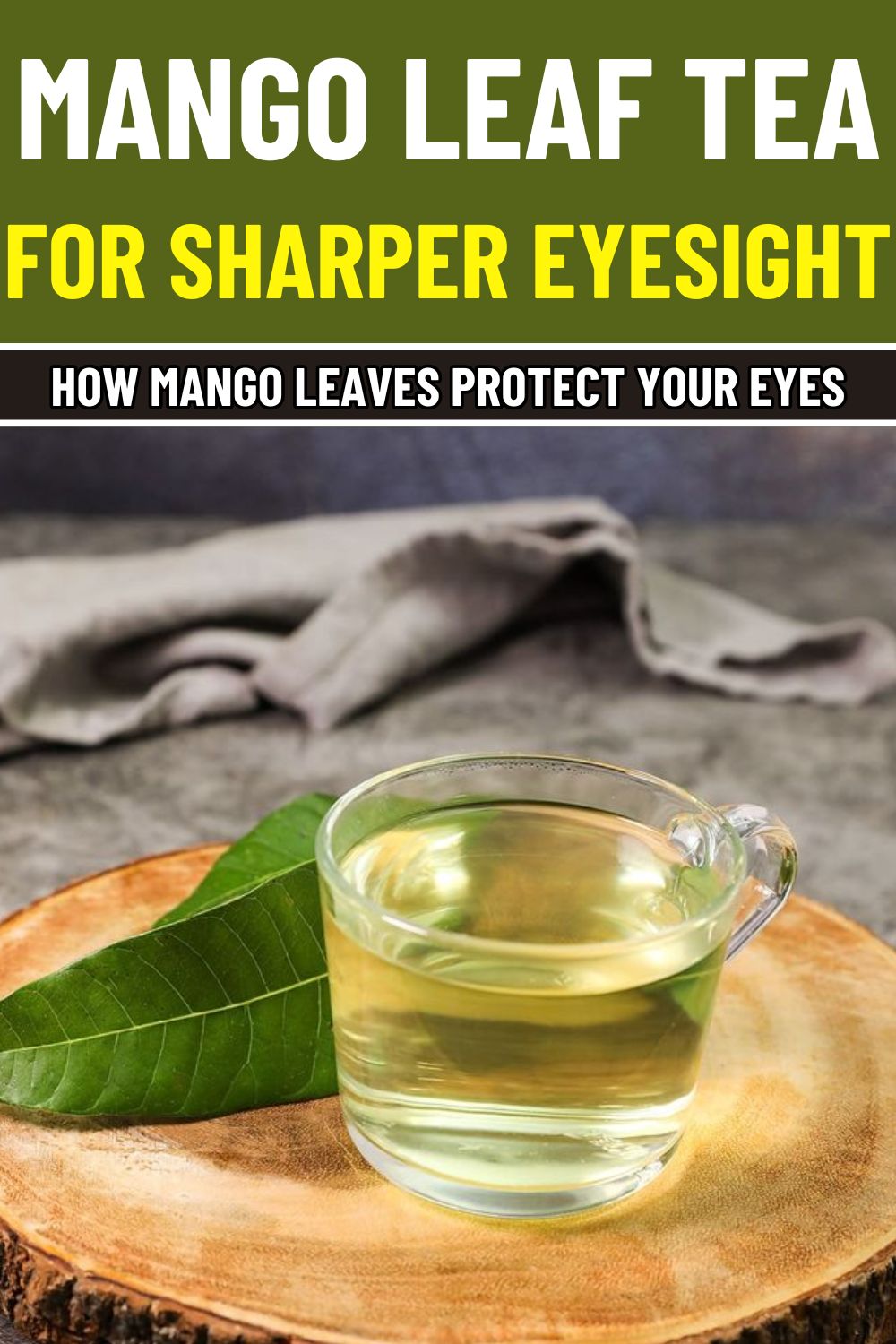Your eyesight is one of your most precious senses, yet modern lifestyles, excessive screen time, poor diets, and environmental toxins can weaken vision over time.
What if a simple, natural remedy could help protect your eyes and even improve your vision? Mango leaf tea, an ancient yet underrated herbal infusion, is loaded with nutrients that support eye health.
Keep reading to learn how mango leaf tea benefits your vision and how to incorporate it into your daily routine.
Why Mango Leaf Tea is a Vision-Boosting Superdrink
Mango leaves are packed with compounds that nourish the eyes and shield them from damage. They contain mangiferin, a potent antioxidant that reduces oxidative stress, along with vitamin A, lutein, and zeaxanthin, nutrients essential for maintaining good eyesight. Here’s how this tea can work wonders for your vision.
1. Prevents Age-Related Vision Decline
As you age, your risk of developing macular degeneration and cataracts increases. Mango leaves contain lutein and zeaxanthin, two carotenoids known for protecting the retina from damage caused by blue light and oxidative stress.
A study published in JAMA Ophthalmology found that higher levels of these carotenoids in the diet are linked to a reduced risk of macular degeneration.
Drinking mango leaf tea regularly can help preserve your eyesight and slow down age-related vision problems.

2. Enhances Night Vision and Prevents Dry Eyes
Struggling to see in dim lighting? Mango leaf tea is a natural source of vitamin A, which is crucial for night vision. A deficiency in this vitamin can lead to night blindness and dry eye syndrome.
Research published in Advances in Nutrition confirms that vitamin A plays a key role in maintaining the health of the cornea and preventing dryness, irritation, and inflammation in the eyes.
If you experience frequent eye strain or dryness, sipping on this tea may help keep your eyes moist and comfortable.
3. Reduces Eye Strain from Screens and Blue Light Exposure
With more time spent on phones, tablets, and computers, digital eye strain has become a common issue. Excessive exposure to blue light from screens can cause eye fatigue, headaches, and even long-term retinal damage.
Mango leaves contain polyphenols and flavonoids, which have been shown to reduce inflammation and improve eye resilience against screen-related stress.
Drinking mango leaf tea daily can help soothe tired eyes and reduce discomfort caused by prolonged screen exposure.

4. Fights Oxidative Stress and Prevents Eye Diseases
Oxidative stress is a major factor in glaucoma, cataracts, and retinal damage. Mango leaves are rich in mangiferin, a bioactive compound with strong antioxidant and anti-inflammatory properties.
A study in Oxidative Medicine and Cellular Longevity found that mangiferin protects eye tissues from oxidative damage, reducing the risk of degenerative eye diseases.
5. Improves Blood Circulation to the Eyes
Proper blood circulation is essential for maintaining healthy eyesight. Mango leaf tea has natural vasodilatory properties, meaning it helps widen blood vessels and improve blood flow to the retina and optic nerve.
Better circulation ensures that the eyes receive enough oxygen and nutrients, reducing the risk of blurry vision, eye fatigue, and retinal degeneration. If you often experience tired or strained eyes, drinking mango leaf tea can help refresh and revitalize them.

6. Supports Diabetic Eye Health (Prevents Diabetic Retinopathy)
Diabetes can severely impact vision, leading to diabetic retinopathy, a condition that damages blood vessels in the retina. Mango leaf tea is known to help regulate blood sugar levels due to its high mangiferin and tannin content.
A study published in Phytomedicine found that mango leaf extracts help lower blood sugar and improve insulin sensitivity. By managing glucose levels, this tea can reduce the risk of diabetic-related vision problems and protect eye health in those with diabetes.
7. Soothes Eye Inflammation and Reduces Redness
If you frequently experience red, irritated, or swollen eyes, mango leaf tea’s natural anti-inflammatory compounds can help.
The flavonoids in mango leaves work to reduce inflammation in the delicate eye tissues, providing relief from conditions like conjunctivitis (pink eye) and eye allergies.
Using cooled mango leaf tea as an eyewash can further help soothe irritation, making it a natural remedy for eye discomfort.

How to Use Mango Leaf Tea for Vision Health
Ingredients:
- 5-7 fresh or dried mango leaves
- 2 cups of water
- 1 teaspoon of honey (optional, for taste)
- A squeeze of fresh lemon juice (optional for extra antioxidants)
Instructions:
- First, rinse the mango leaves thoroughly to remove any dirt or residues.
- Next, bring 2 cups of water to a boil in a saucepan.
- Then, add the mango leaves to the boiling water and let them steep for 10-15 minutes.
- Once done, remove from heat and allow the tea to cool slightly.
- Finally, strain the tea into a cup and enjoy warm. You can add honey or lemon for additional flavor and health benefits.

How to Drink for Best Results
Drink one cup in the morning on an empty stomach for maximum absorption.
For better results, consume another cup in the evening before bedtime.
Continue drinking daily for at least 4-6 weeks to notice improvements in vision and eye health.
Cautions and Precautions
If you have low blood sugar, be cautious, as mango leaves naturally lower glucose levels.
People with allergies to mango leaves should avoid this tea to prevent allergic reactions.
Pregnant or breastfeeding women should consult a doctor before consuming herbal teas regularly.
Overuse may lead to digestive discomfort, so stick to 1-2 cups per day for best results.
Disclaimer
This article is for informational purposes only and should not be taken as medical advice. Always consult a healthcare provider before trying new herbal remedies, especially if you have existing health conditions.

How Mango Leaf Tea Fights Cataracts, Blurry Vision, and Eye Fatigue
